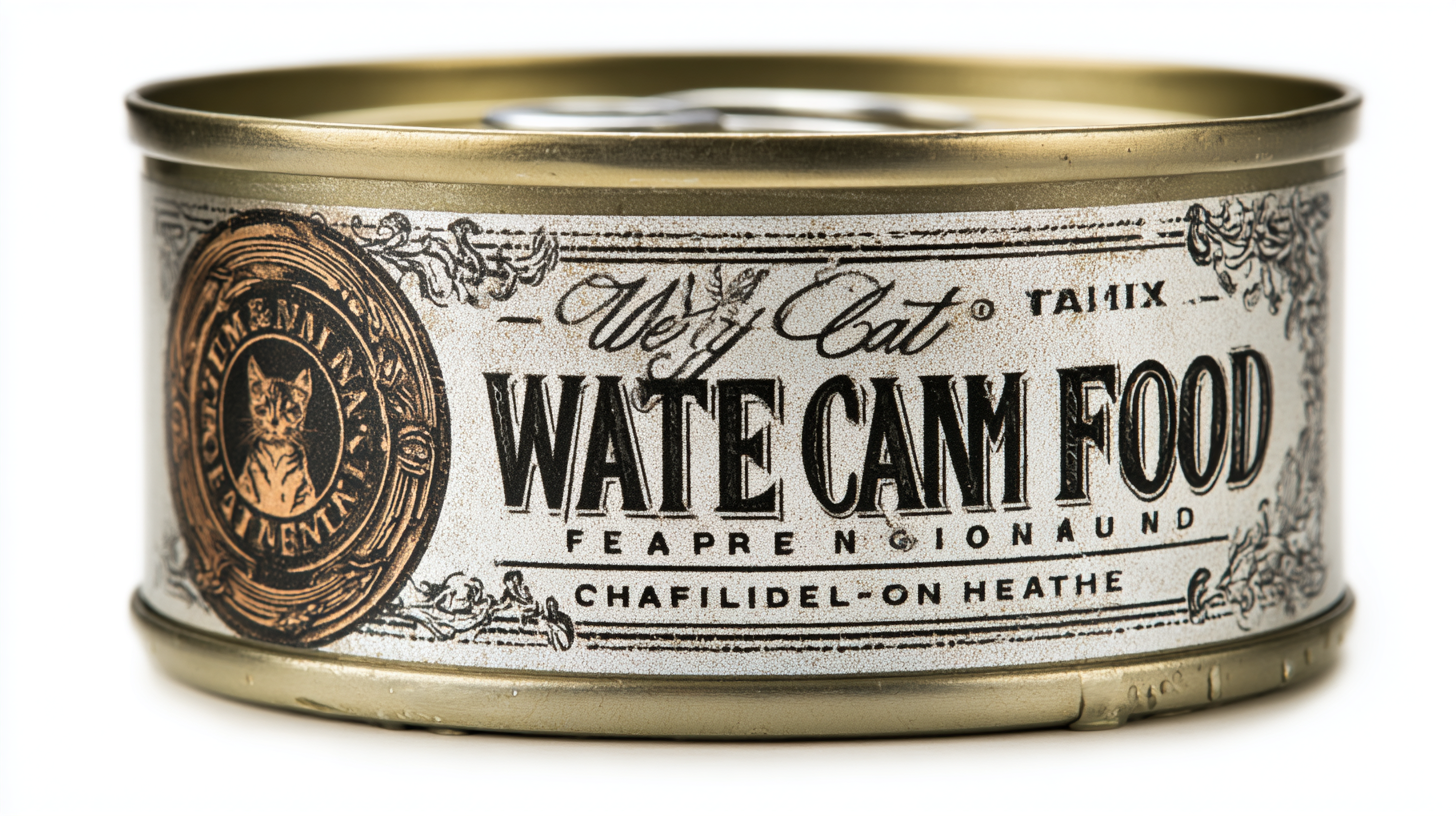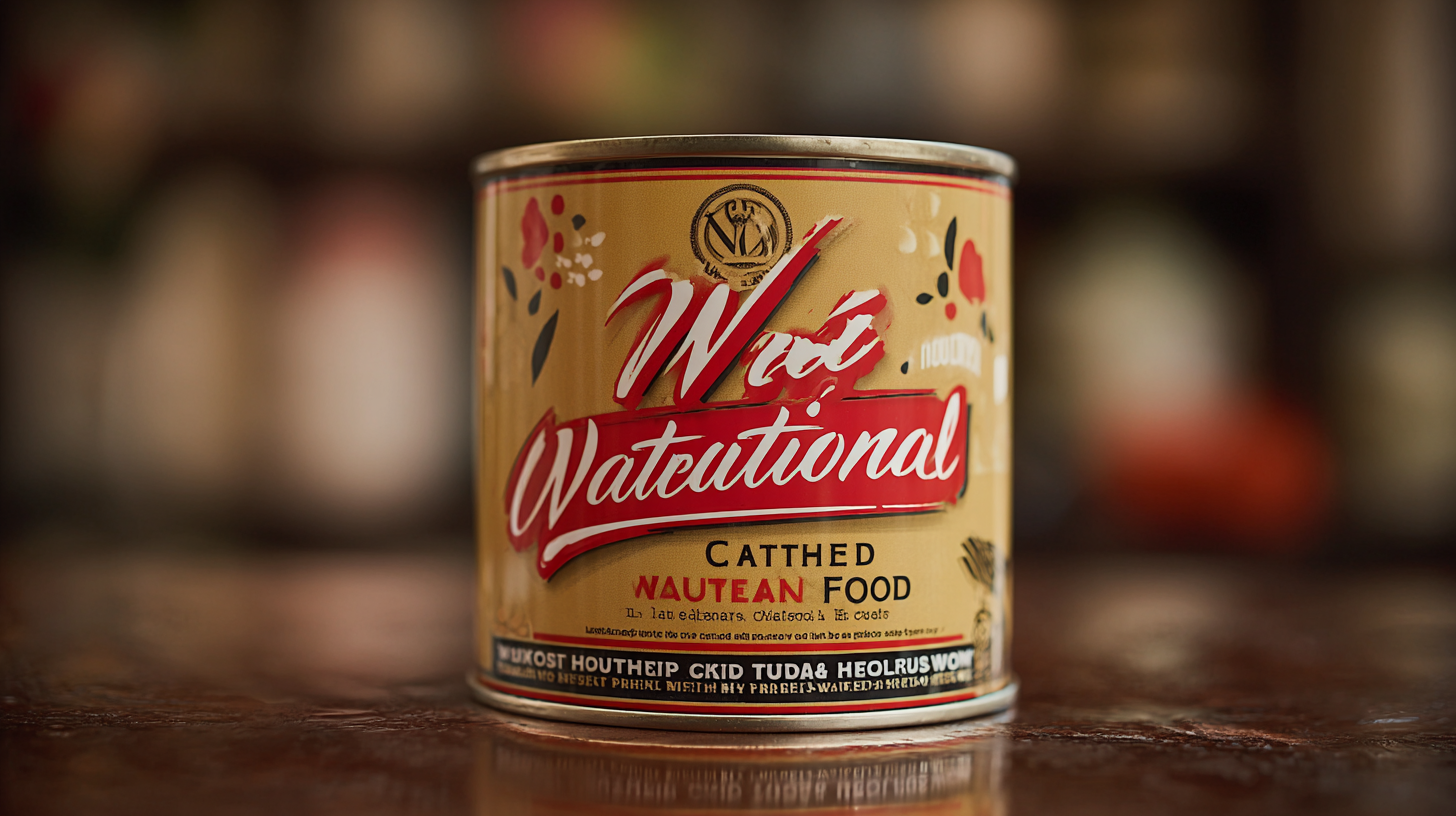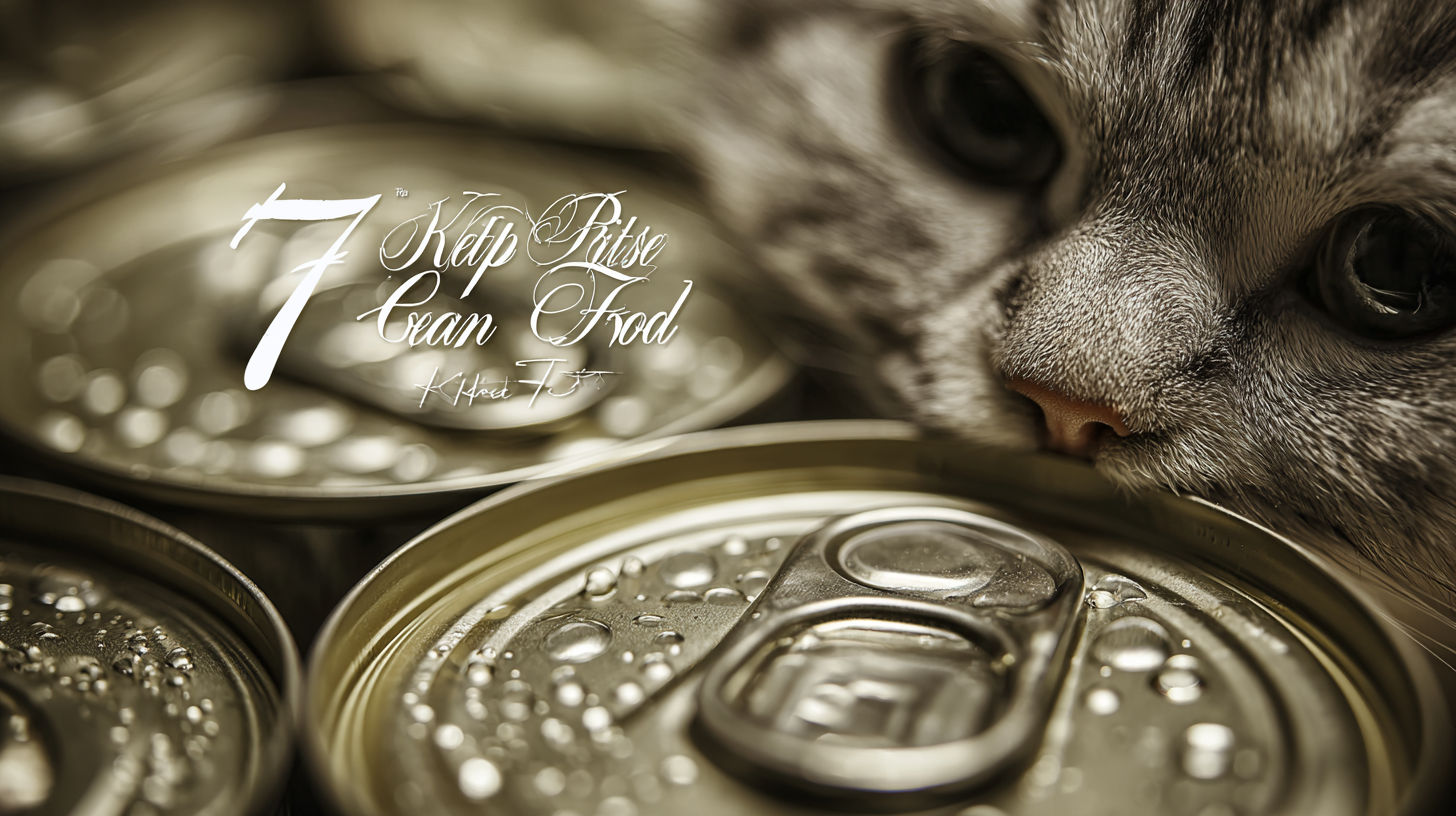When it comes to choosing the best diet for our feline companions, Wet Canned Cat Food stands out as a top choice for optimal health and well-being. With a rich blend of essential nutrients, this type of cat food not only ensures hydration but also provides a delectable taste that even the pickiest eaters cannot resist. In this blog, we will explore the top seven nutritional specifications that make Wet Canned Cat Food a preferred option among cat owners and manufacturers alike. Our insights will draw from the expertise of leading factories that consistently rank among the best on a global scale, showcasing how their commitment to quality translates into healthier pets. By understanding these nutritional specs, you can make informed decisions that contribute to your cat's overall wellness and longevity.

High-quality protein sources are crucial for the well-being of cats, especially in wet canned food. Wet food is often richer in moisture, which aids in hydration and supports kidney function. According to recent veterinary recommendations, diets high in protein, including chicken, turkey, and fish, provide essential amino acids that are vital for muscle development and overall health. Reports indicate that a protein content of at least 30% is optimal for maintaining a healthy feline diet. With the right protein source, cats are less likely to experience food sensitivities, making it an excellent choice for those with sensitive stomachs.
Tips for choosing the best wet canned cat food include checking for high-quality animal protein listed as the first ingredient—this ensures your cat gets the essential nutrients it needs. Additionally, look for formulas enriched with vitamins and minerals to support immune health. Lastly, consider your cat’s age and lifestyle; young kittens may require different nutritional ratios compared to older cats. In 2025, it has been emphasized that finding a balance between protein and moisture content can lead to better health outcomes for your pet.
Essential fatty acids (EFAs) play a crucial role in maintaining healthy skin and a lustrous coat for our feline companions. Cats, being obligate carnivores, require specific types of fatty acids that their bodies cannot synthesize on their own. These include omega-3 and omega-6 fatty acids, which are vital not only for skin health but also for overall well-being. A diet rich in these nutrients can help prevent skin disorders, reduce shedding, and manage allergies.
Wet canned cat food is often a great source of essential fatty acids, as it typically contains higher moisture content and quality animal proteins compared to dry kibble. This moisture helps with hydration and digestion, while the proteins provide the building blocks needed for healthy skin. Ingredients like fish oils or flaxseed are common in high-quality canned foods, delivering essential EFAs directly to your cat's system. Feeding your cat with the best wet canned food can ensure that they receive the optimal balance of nutrients necessary for a shiny coat and healthy skin, keeping them looking and feeling their best.

When evaluating the nutritional needs of felines, the role of vitamins and minerals cannot be overstated. A report from the Association of American Feed Control Officials (AAFCO) highlights that essential vitamins such as A, D, E, and the B complex are crucial for maintaining optimal health in cats. Vitamin A, for instance, supports vision and immune function, while B vitamins play a vital role in energy metabolism and neurological health. Deficiencies in these essential nutrients can lead to serious health issues, including compromised immune responses and diminished cognitive function.
Minerals are equally important in a feline's diet. According to the Pet Food Institute, essential minerals like calcium, phosphorus, and magnesium contribute to strong bone structure and metabolic processes. An imbalance of these minerals can lead to bone disorders or urinary tract issues. Wet canned cat food often contains a better balance of these nutrients compared to dry food, primarily due to its formulation and moisture content, which helps in nutrient absorption. For cat owners, selecting high-quality wet food rich in vitamins and minerals is a significant step towards ensuring their pets lead a healthy and vibrant life.
| Nutritional Specification | Percentage / mg per 100g | Importance |
|---|---|---|
| Protein | 30g | Essential for muscle maintenance and energy |
| Fat | 15g | Provides energy and supports skin and coat health |
| Fiber | 2g | Aids in digestion and prevents hairballs |
| Moisture | 78g | Vital for hydration and kidney health |
| Vitamin A | 1,500 IU | Supports vision and immune function |
| Taurine | 300mg | Essential for heart health and vision |
| Calcium | 0.5g | Important for bone health and growth |
Moisture content is a critical aspect of wet canned cat food that directly influences feline hydration. Cats have a naturally low thirst drive, having descended from ancestors who met their hydration needs predominantly through their prey. According to a report by the veterinary nutritionists at the American Animal Hospital Association (AAHA), feline diets with a moisture content of around 75-80% can significantly enhance hydration levels. This high moisture content not only helps to maintain optimal kidney function but also supports overall health by aiding digestion and nutrient absorption.
Incorporating wet canned cat food into your pet’s diet can notably improve hydration, especially in older cats or those with kidney disease. Research published in the Journal of Feline Medicine and Surgery indicates that cats consuming a moisture-rich diet showed a 40% higher urine output compared to those on dry food alone. This increase in hydration can prevent common health issues such as urinary tract diseases and bladder stones, making wet food a vital component for maintaining your cat's long-term health and wellness. By prioritizing the moisture content in your cat's diet, you can ensure they receive the hydration necessary for vibrant living.
When selecting the best wet canned cat food for your feline friend, grain-free options can play a crucial role in supporting digestive health and managing allergies. Many cats are naturally obligate carnivores, meaning they thrive on a diet rich in animal proteins. Grain-based fillers can lead to digestive issues and are often linked to food sensitivities. Therefore, choosing grain-free formulas can alleviate gastrointestinal discomfort, allowing your cat to absorb nutrients more effectively and maintain a healthy weight.
In addition to improving digestion, grain-free cat foods can also help manage common allergic reactions in cats. Ingredients such as corn, wheat, and soy are known allergens for many felines and can result in symptoms ranging from skin irritations to gastrointestinal disturbances. By opting for wet canned foods that prioritize high-quality proteins and eliminate grains, pet owners can reduce the risk of allergic reactions. This thoughtful approach to nutrition not only enhances your cat's overall health but also contributes to a happier, more active lifestyle.

